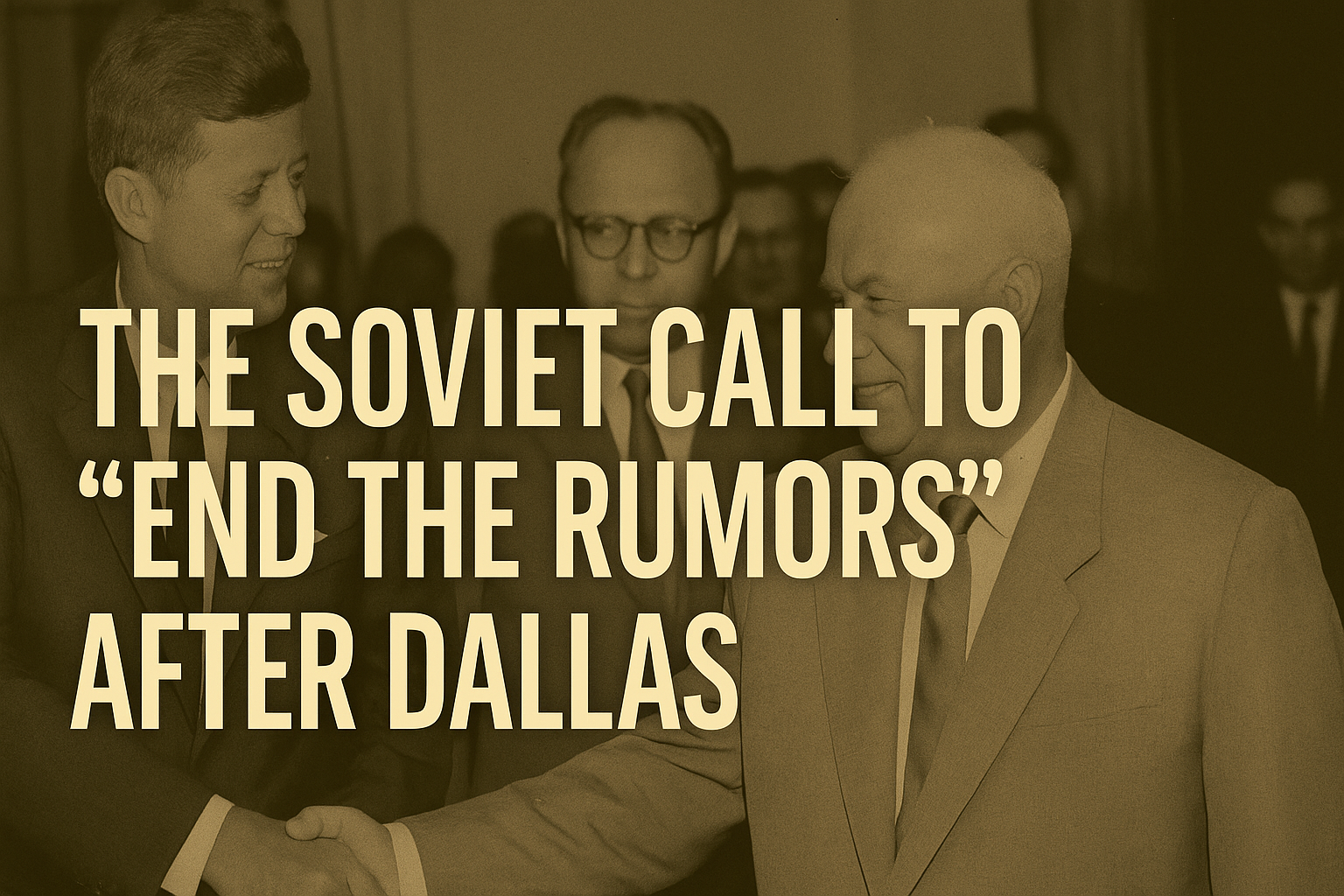Document 180-10144-10288, released as part of the 2025 JFK files, captures a fascinating diplomatic moment in the days after President John F. Kennedy’s assassination.
Soviet officials urgently communicated with U.S. contacts, not to explain, but to appeal.
Their message: stop the speculation. The rumors, they feared, could spiral into something far worse than confusion-war.
🗣️ “Rumors Are Damaging to Peace”
The memo summarizes a Soviet appeal for calm in the media and political discourse.
As conspiracy theories swirled and fingers pointed toward Cuba and the USSR, the Soviet embassy reached out discreetly to urge restraint.
“Such accusations serve only to inflame tensions and threaten peace between our nations.”
They weren’t denying involvement so much as pleading: don’t let speculation do the damage the assassin already had.
🧱 A Government on the Defensive
Soviet officials acknowledged their awareness of Oswald’s brief stay in the USSR, but emphasized again that he acted alone and without support.
More importantly, they were clearly watching how the story was being spun inside the U.S.-and feared where that might lead.
Their fear? That the chaos in Dallas could become the justification for a Cold War escalation neither side wanted.
📉 Moscow’s Political Instincts
Rather than press for sympathy, the Soviets framed their message around diplomacy. The tone of the memo isn’t apologetic-it’s strategic. The USSR didn’t want to be scapegoated, but more critically, they didn’t want to be provoked into a confrontation sparked by public hysteria.
It was a rare glimpse of real-time, real-world political containment.
🧩 The Narrative Moscow Couldn’t Control
The irony of the document is that the Soviets were right. The speculation did take over.
And for decades, the questions about who really killed Kennedy-and whether Oswald had help-have refused to fade.
But the Soviets weren’t worried about conspiracy theories.
They were worried about bombs.

